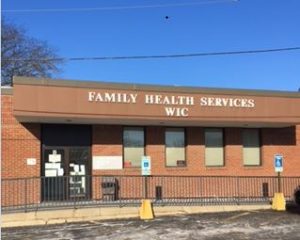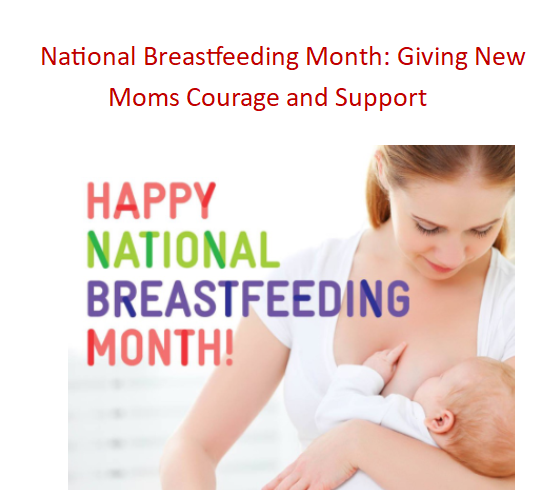As National Breastfeeding Month is once again upon us during the month of August, Will County Health Department WIC Program Manager and Breastfeeding Coordinator Alissa McCormick says there is plenty of desire among new mothers to breastfeed their babies. But when they start thinking about “how to fit it in,” that’s where many of them feel that the challenges are too great.
“I think most moms are very well aware of the benefits of breastmilk for their babies,” said McCormick. “In fact, I know very few that aren’t aware of it. But when they start looking at the whole picture, it can be very overwhelming.”
That “whole picture” is often a matter of worrying if you can fit it into your daily routine, especially when it comes to working moms. “You really have to be very brave and be, should we say, ‘daring,’” McCormick explained. “Because first you need to decide, ‘Am I going to go home during the day (or perhaps to a daycare) when it’s time to breastfeed?’ Or, if you must, use a breast pump while at work when you need to express milk, which requires somewhere secure and private. Either way that means having the guts to approach your employer to even talk about it. You have to say ‘I want to do this,’ and you have to hope they say, ‘We will work it out.’”
Various Illinois laws passed over the years have given moms more rights when it comes to breastfeeding. Among those are the “Nursing Mothers in the Workplace Act” (2001), which states that “an employer shall provide reasonable unpaid break time each day to an employee who needs to express breastmilk for her infant child, and shall make reasonable efforts to provide a location in close proximity to the work area, other than a toilet stall, where an employee can express her milk in privacy.” There is also “The Right to Breastfeed Act” (2004), which states that “a mother may breastfeed in any location, public or private, where the mother is otherwise authorized to be.”

The Will County Health Department WIC program (to be relocated in 2020 to the new WCHD building at the same 501 Ella Avenue location) offers important breastfeeding guidance to program participants.
For July 2018 through June of 2019, WIC Program data showed that 80% of WIC mothers initiated breastfeeding. Unfortunately, 30% of those who started had stopped by the time their baby was 4 weeks old. The most common reason given for stopping was decreased milk supply due to early formula supplementation. The second most common reason was misunderstanding the “demand and supply” nature of maintaining milk production (milk must leave the breast to signal the breast to make more milk).
McCormick says a mom’s best bet to find success with her own breastfeeding goals, is to simply get a good start. First, in addition to telling your employer, you should let those close to you know (doctor, family, close friends) that you plan to breastfeed so they can help you with that plan. You should also feed the baby as soon as possible after delivery, establish a good “latch-on” within the first few days, and pay attention to baby’s “hunger cues”- the signs baby gives you to let you know he/she is hungry. These include stretching before waking, licking of lips, and putting hands to his/her mouth. The last sign of hunger is crying. If you miss the other signs, and wait to feed baby until he/she is crying, baby is often too hungry and upset to learn how to nurse well.
McCormick says the Will County Health Department’s WIC (Women, Infants, and Children) program offers important guidance to program participants. “Our most current WIC mission is to contact each WIC mom twice within one week of delivery to touch base for questions and give breastfeeding support when needed.”
The WIC program also teaches the health benefits of breastmilk; which research has shown to include lowering a baby’s risk of asthma, ear infections, diabetes, respiratory and digestive problems. It can also reduce the risk of certain cancers in women.
The Will County Health Department WIC office can be reached at 815-727-8524, or by going to http://willcountyhealth.org/women-infant-and-children-wic/.

